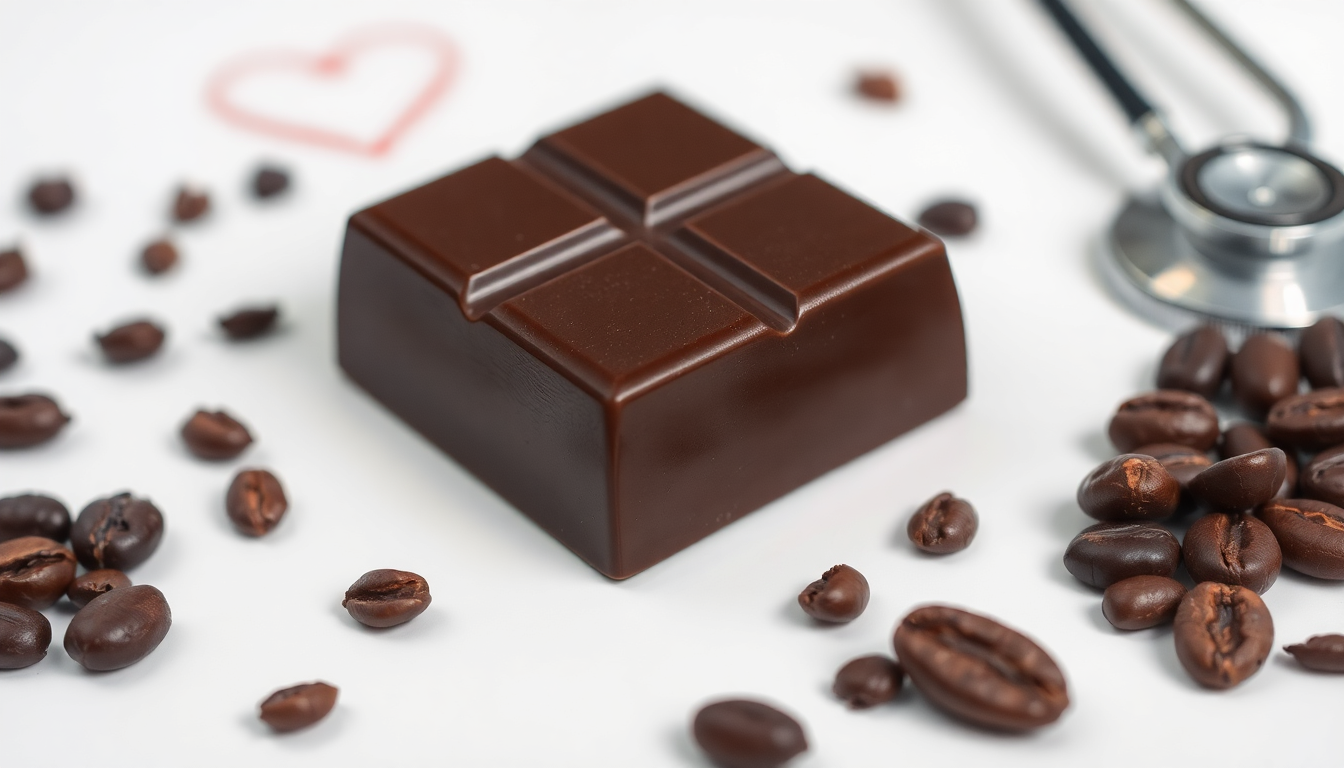
Is Dark Chocolate Healthy? The Science-Backed Answer You've Been Looking For
Is dark chocolate healthy? The resounding answer from modern nutritional science is yes—but with important qualifications about quality, quantity, and cacao percentage. Unlike candy masquerading as chocolate, authentic dark chocolate with high cacao content delivers impressive health benefits that have earned it recognition as a functional food capable of supporting cardiovascular health, cognitive function, and overall wellness when consumed mindfully.
Understanding what makes dark chocolate healthy requires examining its unique nutritional profile, bioactive compounds, and the extensive research supporting its health-promoting properties. Not all dark chocolate offers equal benefits, making education about quality selection crucial for maximizing health advantages while enjoying this beloved treat.
The Scientific Foundation of Dark Chocolate's Health Benefits
Antioxidant Powerhouse Status
Dark chocolate stands among the most antioxidant-rich foods available, containing higher ORAC (Oxygen Radical Absorbance Capacity) values than many celebrated superfoods including blueberries, acai berries, and pomegranates. These powerful antioxidants, primarily flavonoids such as epicatechin, catechin, and procyanidins, actively combat oxidative stress and cellular damage throughout the body.
The concentration of these beneficial compounds directly correlates with cacao percentage—higher percentages provide exponentially more antioxidants. Raw cacao contains the highest levels of these protective compounds, as minimal processing preserves heat-sensitive antioxidants that conventional manufacturing often destroys.
Research demonstrates that these antioxidants provide systemic protection against free radical damage, potentially reducing cancer risk, slowing aging processes, and supporting immune function. The bioavailability of chocolate's antioxidants appears particularly high, meaning the body efficiently absorbs and utilizes these protective compounds.
Essential Mineral Content
Quality dark chocolate serves as an excellent source of essential minerals often deficient in modern diets. Magnesium, abundant in cacao, supports over 300 enzymatic reactions including energy metabolism, protein synthesis, and cardiovascular function. Iron aids oxygen transport and energy production, while copper supports immune function and connective tissue formation.
Potassium helps regulate blood pressure and supports heart health, while manganese contributes to bone formation and antioxidant enzyme function. These minerals work synergistically with chocolate's other beneficial compounds, creating comprehensive nutritional support that extends beyond simple pleasure.
Cardiovascular Health Benefits
Blood Pressure and Circulation Improvements
Extensive research demonstrates dark chocolate's ability to support healthy blood pressure levels through multiple mechanisms. Flavanols stimulate nitric oxide production in blood vessel walls, promoting vasodilation and improved circulation. This effect appears most pronounced in individuals with elevated blood pressure, suggesting chocolate may offer particular benefits for those at cardiovascular risk.
Studies show that consuming 20-30 grams of high-flavanol dark chocolate daily can produce measurable improvements in blood pressure within weeks. These effects result from improved endothelial function—the health of blood vessel linings—which plays crucial roles in cardiovascular disease prevention.

The sustained consumption of quality dark chocolate like 81% Dark Chocolate varieties provides consistent flavanol exposure that supports long-term cardiovascular health through improved blood flow and reduced arterial stiffness.
Cholesterol Profile Enhancement
Dark chocolate consumption positively influences cholesterol profiles through multiple pathways. Antioxidants help prevent LDL cholesterol oxidation, a critical step in arterial plaque formation, while certain compounds may modestly increase beneficial HDL cholesterol levels.
The stearic acid found in cacao butter, unlike other saturated fats, appears to have neutral or beneficial effects on blood lipids. This unique fatty acid profile, combined with chocolate's antioxidant content, creates a cardiovascular-friendly lipid impact that distinguishes quality dark chocolate from other indulgent foods.
Cognitive Function and Brain Health
Enhanced Mental Performance
Dark chocolate's impact on brain function involves multiple mechanisms that support both immediate cognitive performance and long-term brain health. Flavanols increase cerebral blood flow, delivering oxygen and nutrients essential for optimal neural function, while mild caffeine and theobromine content provides gentle stimulation without the harsh effects of stronger stimulants.
Research indicates that consuming flavanol-rich dark chocolate can improve working memory, processing speed, and attention span within hours of consumption. These acute benefits suggest chocolate's compounds readily cross the blood-brain barrier and actively influence neural activity.
Neuroprotective Properties
Long-term studies suggest regular dark chocolate consumption may help preserve cognitive function as we age. The antioxidants in chocolate appear to protect brain cells from oxidative damage while supporting neuroplasticity—the brain's ability to form new neural connections throughout life.
Emerging research explores chocolate's potential role in reducing neurodegenerative disease risk, with some studies suggesting regular consumption of high-flavanol chocolate may support memory preservation and cognitive resilience in older adults.
Mood Enhancement and Stress Management
Natural Mood Regulation
Dark chocolate contains several compounds that positively influence mood and emotional well-being. Phenylethylamine triggers endorphin release, creating feelings of pleasure and satisfaction, while anandamide activates cannabinoid receptors associated with bliss and contentment.
The magnesium content in quality chocolate supports nervous system function and stress response regulation. Many people report feeling calmer and more emotionally balanced after consuming small amounts of high-quality dark chocolate, effects supported by measurable changes in stress hormone levels.

These mood-supporting effects appear most pronounced with Organic Dark Chocolate varieties that preserve the full spectrum of cacao's naturally occurring mood-enhancing compounds through minimal processing and organic cultivation methods.
Stress Hormone Modulation
Research demonstrates that regular dark chocolate consumption may help regulate cortisol levels and improve the body's stress response. The antioxidants and minerals in chocolate appear to buffer the physiological impact of stress while supporting adrenal function.
These adaptogenic-like properties suggest that quality dark chocolate, when consumed as part of balanced lifestyles, may contribute to improved stress resilience and emotional stability over time.
Quality Matters: Choosing Healthy Dark Chocolate
Cacao Percentage Considerations
The health benefits of dark chocolate directly correlate with cacao content—higher percentages generally provide more benefits. Chocolates containing 70-85% cacao offer optimal balances of health benefits and palatability, while options like 99% Sugar-Free Dark Chocolate provide maximum nutritional density for those seeking ultimate health benefits.
Lower percentage chocolates (below 60% cacao) contain higher sugar levels that can counteract many health benefits, making cacao percentage a crucial selection criterion for health-conscious consumers.
Processing and Ingredient Quality
The manufacturing process significantly impacts chocolate's health benefits. Heavily processed chocolates lose many beneficial compounds through high-heat treatment, alkalization, and chemical processing. Raw or minimally processed chocolates retain maximum nutritional value while providing superior flavor complexity.
Look for chocolates with simple ingredient lists: cacao, cacao butter, natural sweeteners, and perhaps vanilla. Avoid products containing artificial flavors, preservatives, or excessive amounts of refined sugar that diminish health benefits.
Organic and Ethical Sourcing
Organic chocolate ensures freedom from pesticide residues while supporting sustainable farming practices that preserve soil health and biodiversity. Fair-trade certification guarantees ethical treatment of farmers and sustainable production methods that maintain cacao's natural nutritional properties.
These quality factors not only support health benefits but also ensure the environmental and social sustainability of chocolate production, aligning indulgence with ethical consumption practices.
Optimal Consumption Guidelines
Serving Size Recommendations
Research suggests that 20-30 grams of high-quality dark chocolate daily provides optimal health benefits without excessive calorie intake. This amount—approximately 1-2 small squares—delivers therapeutic levels of beneficial compounds while allowing for sustainable, long-term consumption patterns.
Quality over quantity remains crucial; a small amount of premium chocolate provides more satisfaction and health benefits than larger quantities of lower-grade alternatives.
Timing and Pairing Strategies
Consuming dark chocolate earlier in the day allows for energy utilization while avoiding potential sleep disruption from caffeine and theobromine. Pairing chocolate with complementary foods can enhance absorption and benefits:
- Nuts provide healthy fats that improve flavonoid absorption
- Berries offer additional antioxidants and fiber
- Green tea creates synergistic antioxidant effects
Integration with Healthy Lifestyles
Dark chocolate works best as part of overall healthy lifestyle patterns rather than as isolated health intervention. When combined with balanced nutrition, regular exercise, stress management, and adequate sleep, chocolate's benefits become part of comprehensive wellness strategies.
Potential Considerations and Limitations
Individual Sensitivities and Interactions
While dark chocolate offers significant health benefits for most people, some individuals may experience sensitivities to caffeine, theobromine, or other compounds. Those with diagnosed heart conditions, severe caffeine sensitivity, or specific medication interactions should consult healthcare providers before increasing chocolate consumption.
Chocolate's oxalate content may concern individuals with history of kidney stones, while its tyramine content might affect those taking certain medications or with migraine sensitivities.
Quality Versus Commercial Products
Mass-produced chocolates often contain minimal cacao and numerous additives that negate health benefits. Reading labels carefully ensures you select products that provide genuine health advantages rather than marketing promises without nutritional substance.
Investment in premium chocolate pays dividends in both health benefits and satisfaction, making smaller quantities of high-quality products more valuable than larger amounts of inferior alternatives.
Maximizing Health Benefits Through Smart Choices
Identifying Superior Products
Premium dark chocolate demonstrates several quality indicators:
- High cacao percentage (70% or higher)
- Minimal, recognizable ingredients
- Organic and fair-trade certifications
- Proper texture and flavor complexity
- Sustainable packaging and ethical sourcing
Understanding Processing Methods
Cold-pressed or raw chocolate products retain maximum beneficial compounds compared to heavily processed alternatives. Stone-grinding and traditional manufacturing techniques preserve chocolate's natural properties while creating superior flavor profiles.
Balancing Indulgence with Wellness
The healthiest approach to dark chocolate consumption involves mindful enjoyment rather than mechanical consumption. Savoring small amounts slowly enhances both satisfaction and potential health benefits while supporting sustainable consumption patterns.
Conclusion: Embracing Dark Chocolate as Functional Food
Is dark chocolate healthy? The scientific evidence overwhelmingly supports dark chocolate's classification as a functional food capable of supporting multiple aspects of health when chosen wisely and consumed mindfully. The key lies in selecting high-quality products with substantial cacao content while maintaining appropriate portion sizes.
Quality dark chocolate represents a rare convergence of pleasure and wellness—a food that can simultaneously satisfy cravings and support health goals. By understanding the factors that determine chocolate's health benefits and making informed choices about products and consumption patterns, you can confidently include this ancient superfood in modern wellness routines.
The future of healthy indulgence belongs to products that honor both taste and nutrition, making informed chocolate consumption not just permissible but potentially beneficial for long-term health and well-being. Choose quality, consume mindfully, and enjoy the remarkable health benefits that properly selected dark chocolate can provide.

Claire Bennett
I'm Claire, a chocolate lover and artisan based in a small town where I run a tiny home kitchen dedicated to exploring everything chocolate. From single-origin dark bars to creamy ganache and handmade truffles, I find joy in working with all types of chocolate. I believe chocolate has a story, and I love bringing that story to life through humble, heartfelt creations.



Leave a comment
This site is protected by hCaptcha and the hCaptcha Privacy Policy and Terms of Service apply.